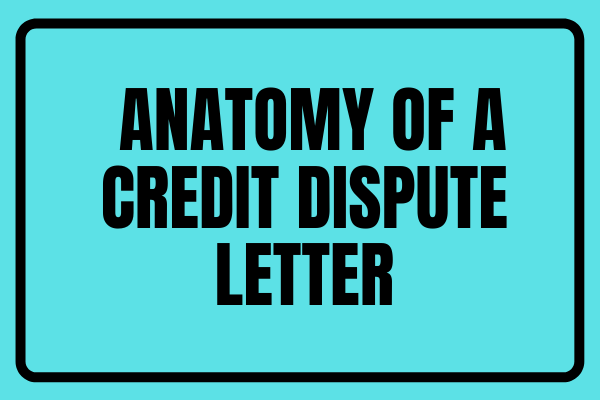The Fair Credit Reporting Act or FCRA of 1970 has recently been strengthened in order to allow anyone to dispute negative disputes on their credit report. This can be done with a letter of dispute and in turn the credit bureaus must either delete the listing or verify it. The key to repairing bad credit is to write a properly formatted letter of dispute to one or all of the credit bureaus and send them out via registered mail. Always keep a copy of your correspondence and the receipt from your registered mail letter for further reference. It is also important to make copies of your credit report to include in the letter, not originals. Bel Below is a step-by-step guide to writing a letter of dispute to get rid of those black marks off your credit report for good.
Get Your Credit Report
Once you have received your credit report and noticed that there is an error, outdated listing or a bad listing that does not have anything to do with you, it is important to look over the details and dispute these mistakes first.Make sure that for each listing on your credit report, you check the personal identification information. Often, a listing that is not yours can end up on your report because it seems to match up with your details. If you dispute these types of errors first, other mistakes on your credit report will no longer match your file. Resource: Experian Free Credit ReportMake A List Of Items To Dispute
Once you have made sure that each of the incorrect personal detail listings are accounted for, it is time to look at all of the other damaging details on your credit report. List these from most damaging right down to neutral. For instance, a bankruptcy listing is far more harmful than a late payment or credit rejection.
Once you have all of the necessary disputable listings set out in front of you, begin writing your first letter of dispute. Each of the three credit reporting agencies should be addressed, even if these disputable listings only appear in one or two of the reports. If the three reporting agencies are addressed with a letter of dispute for each questionable listing, it will ensure that, later on, these items do not appear on your other credit reports.
Send Each Dispute Seperately
All listings, apart from incorrect personal data disputes, must be written out and sent separately. If you try to dispute several items at once it is likely that the agency will reject your claim on the grounds of it being irrelevant. At this point, you should be prepared for the credit reporting agencies to complain or even threaten that your request for a dispute on the items are frivolous or even illegal. This is untrue, credit reporting agencies are required by law to investigate and accept that all disputes are legitimate unless they have evidence to prove otherwise. So don’t give up.
Personalize Your Letters
When writing the letters of dispute, you should consider handwriting them rather than typing them out. Make sure you use strong words that will make it clear to the credit reporting agencies that the mentioned listing is being disputed. Examples of these words are erroneous, outdated, misleading or unverifiable. Do not spend time explaining things in your letter of dispute, explanations are not considered useful. When the reporting agency receives your letter, they are then required to investigate the listing you have disputed.
If you are unsure of the format of dispute letters, samples can be copied or downloaded online by simply doing a search on your favorite search engine. These samples give you a good idea on how a dispute letter should be formatted and what details should be completed to get the maximum effect
It will take between 2 weeks to a month to receive a reply from the credit-reporting agency letting you know that your letter has been received and your dispute is being investigated. After a further 2-4 weeks, a new credit report should be received from the reporting agency to confirm that the item has been removed from you report.
Once the updated credit report has been received, you can then address the next dispute that you have until you have had all of the disputed.
•Sometimes, credit reporting agencies are slow to respond or choose not to respond at all. If this is the case, you will need to send another letter to them to remind them that they are obliged by law to address your dispute.
• Disputing items on your credit report is no easy task, you will need a great deal of patience and you will also need to be persistent and not give up. Remember that the credit reporting agencies are required by law to investigate your disputes, so don’t let them bully you into thinking that it is not possible to have things removed from you credit report.
• For those who don’t have the time or are having difficulties with the credit reporting agencies, there are legal services available that will dispute the items for you at a small fee.

